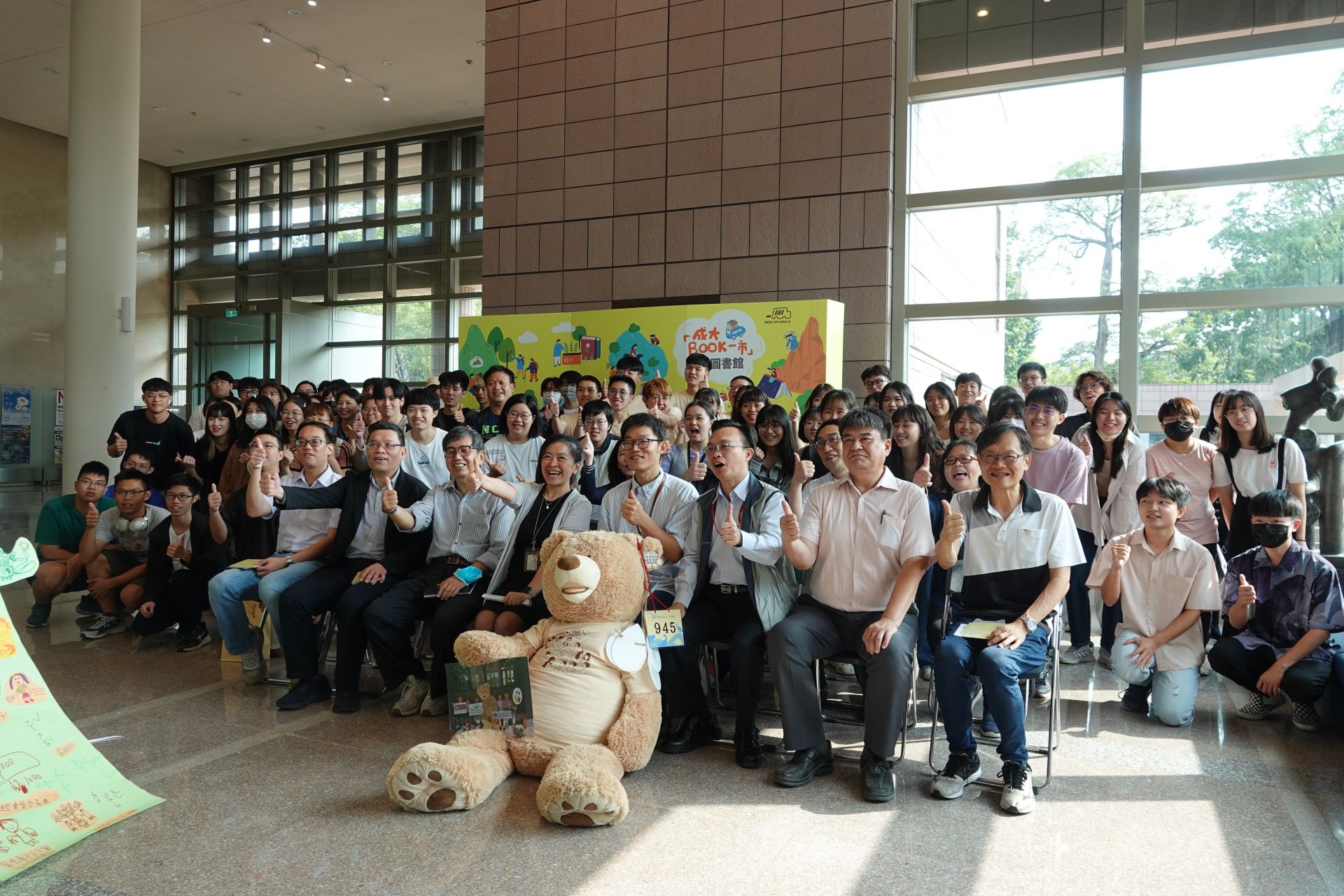SDG10
NCKU's "International Forum on Design for an Aging Society": Promoting a Sustainable, Inclusive Environment for the Elderly
Population super-aging is a global trend and challenge. On August 8th and 9th, National Cheng Kung University (NCKU) grandly hosted the "International Forum on Design for an Aging Society," bringing together over 30 scholars, experts, and industry professionals from around the world to share diverse perspectives, research findings, innovative solutions, and discussions on how universities can cultivate field-ready talents. The forum aimed to serve as a platform for cross-disciplinary collaboration and knowledge exchange, promoting the development of age-friendly communities and sustainable, inclusive environments, ensuring that the elderly remain active and the economy continues to grow.
The forum was held at the Chonghua Hall of the Magic School Green Technology on NCKU's Li-Hsing Campus, under the theme "Designing Sustainable and Inclusive Communities in an Aging Society: Challenges, Innovative Solutions, and Future Talents." The first day focused on "Designing Future Scenarios for a Sustainable Aging Society," with discussions covering four areas: age-friendly healthy cities, aging communities and architecture, elderly product and service design, and future aging lifestyle scenarios. The second day focused on "Field Talent Cultivation under University Social Responsibility (USR)," exploring issues related to a super-aged society and the cultivation of field talents in the context of historical area regeneration, starting with NCKU's international collaborative course under the "Accompany 2026 Project."
International scholars in attendance came from institutions such as Pennsylvania State University, National University of Singapore, Singapore University of Social Sciences, Chiba University, University of Tsukuba, and Kyushu University, along with over 20 interdisciplinary scholars, experts, and practitioners from Taiwan, including NCKU, who shared their experiences.
NCKU Vice President Yuh-Neu Chen and Vice President for Research and Development Chuan-Pu Liu attended the forum, welcoming domestic and international scholars, experts, and industry professionals to jointly address the challenges and opportunities of a super-aged society. In her opening remarks, Vice President Chen emphasized that Taiwan is expected to enter a super-aged society by 2025, with one in every five people being elderly. In response to this trend, universities, in addition to the government and industry, must also play a crucial role through practical education to cultivate talents, accumulate social capital, and drive community development. NCKU’s international USR "Accompany 2026 Project" collaborates with international university partners to propose a vision for cultivating practical talents, which was also shared at the forum. It is believed that the two-day forum will not only bring more knowledge but also yield more results in talent cultivation.
Vice President for Research and Development Chuan-Pu Liu pointed out that six counties and cities in Taiwan have already entered a super-aged society. NCKU has long been committed to sustainability issues, with aging being a long-standing research focus. The two-day forum aimed to present the outcomes of interdisciplinary research to the public and international partners, and to expand its application to Tainan, Taiwan, and the global society.
On the first day, the forum primarily explored the co-creation and collaboration between the design field and the elderly care field. Three international speakers, including Dean Ching-Chuan Yen from the National University of Singapore's Department of Industrial Design, Assistant Professor Inamura Tokushima from Kyushu University in Japan, and Associate Professor Y.L. Rao from Pennsylvania State University in the U.S., discussed the future outlook and new scenarios for elderly care and dementia environments from the perspectives of design and technological innovation. Several NCKU professors from the Department of Urban Planning, Department of Architecture, Department of Industrial Design, and the Graduate Institute of Creative Industry Design, who are engaged in aging research, also shared their latest advancements in various scales of age-friendly healthy cities, aging communities and architecture, elderly product and service design, and future aging lifestyle scenarios.
The afternoon sessions focused on three topics: elderly medical systems, elderly design education, and elderly care innovation. Participants included the Institute of Gerontology at NCKU, the Department of Occupational Therapy at NCKU, the Department of Geriatric Medicine at NCKU Hospital, the Department of Geriatric Medicine at Chi Mei Hospital, and two elderly care startups founded by NCKU students. They engaged in extensive discussions on these topics, sparking new ideas and hopeful visions for the future scenarios of an aging society.
On the morning of the second day, three speakers—Professor Suzuki Masayuki from Chiba University, Associate Professor Yamada Kyota from the University of Tsukuba, and Associate Professor Tan Chengjian from the Singapore University of Social Sciences—shared their experiences in cultivating practical talents from their respective professional perspectives.
Professor Suzuki Masayuki also shared Chiba University's 20-year efforts in promoting community development through three key initiatives: supporting the elderly in nearby communities, developing human resources, and establishing community centers, all through non-profit organization activities. These efforts have had a subjective impact on the well-being of elderly residents and have effectively promoted community development.
The afternoon session focused on sharing domestic experiences in cultivating practical talents. Professors Li-Chuan Lin and Li-Fan Liu from NCKU's "Accompany 2026" USR Project discussed "Field Talent Cultivation in the Context of a Super-aged Society," highlighting how the USR project integrates various NCKU courses and combines strategies for aging in place and healthy aging. This provides teachers and students with significant opportunities to design community welfare, sustainable inclusion, and positioning for the future aging society. The cross-cultural learning facilitated by international courses in collaboration with Singapore and Japan also allowed students to brainstorm together, considering innovative ideas to address global aging. This collaboration later led to NCKU students and faculty traveling to Singapore to promote Taiwan's innovative war drum exercise to local community elders, further spreading the dynamic intergenerational living topic in Singaporean communities.
The second part of the afternoon focused on "Field Talent Cultivation in the Context of Historical Area Regeneration." Professor Zheng-Zhe Chen from Nanhua University and Professor She-Ming Chen from NCKU discussed how they cultivate the professional practical talents needed by local communities in different historical areas in Japan and Taiwan. Finally, Professor Jian-Xiong Zheng from National Chi Nan University shared how the university's USR project empowers "interdisciplinary talents" both inside and outside the university, deepens relationships with foreign universities, and establishes an international talent cultivation mechanism.
The "International Forum on Design for an Aging Society" was hosted by NCKU's College of Planning and Design and the NCKU USR Accompany 2026 Project, with the Social Innovation USR Resource Center of NCKU's College of Humanities and Social Sciences as a co-organizer. The forum focused on key issues in aging communities, aiming to explore the creation of a new, innovative, and future-ready sustainable, inclusive environment for the elderly.
The forum was held at the Chonghua Hall of the Magic School Green Technology on NCKU's Li-Hsing Campus, under the theme "Designing Sustainable and Inclusive Communities in an Aging Society: Challenges, Innovative Solutions, and Future Talents." The first day focused on "Designing Future Scenarios for a Sustainable Aging Society," with discussions covering four areas: age-friendly healthy cities, aging communities and architecture, elderly product and service design, and future aging lifestyle scenarios. The second day focused on "Field Talent Cultivation under University Social Responsibility (USR)," exploring issues related to a super-aged society and the cultivation of field talents in the context of historical area regeneration, starting with NCKU's international collaborative course under the "Accompany 2026 Project."
International scholars in attendance came from institutions such as Pennsylvania State University, National University of Singapore, Singapore University of Social Sciences, Chiba University, University of Tsukuba, and Kyushu University, along with over 20 interdisciplinary scholars, experts, and practitioners from Taiwan, including NCKU, who shared their experiences.
NCKU Vice President Yuh-Neu Chen and Vice President for Research and Development Chuan-Pu Liu attended the forum, welcoming domestic and international scholars, experts, and industry professionals to jointly address the challenges and opportunities of a super-aged society. In her opening remarks, Vice President Chen emphasized that Taiwan is expected to enter a super-aged society by 2025, with one in every five people being elderly. In response to this trend, universities, in addition to the government and industry, must also play a crucial role through practical education to cultivate talents, accumulate social capital, and drive community development. NCKU’s international USR "Accompany 2026 Project" collaborates with international university partners to propose a vision for cultivating practical talents, which was also shared at the forum. It is believed that the two-day forum will not only bring more knowledge but also yield more results in talent cultivation.
Vice President for Research and Development Chuan-Pu Liu pointed out that six counties and cities in Taiwan have already entered a super-aged society. NCKU has long been committed to sustainability issues, with aging being a long-standing research focus. The two-day forum aimed to present the outcomes of interdisciplinary research to the public and international partners, and to expand its application to Tainan, Taiwan, and the global society.
On the first day, the forum primarily explored the co-creation and collaboration between the design field and the elderly care field. Three international speakers, including Dean Ching-Chuan Yen from the National University of Singapore's Department of Industrial Design, Assistant Professor Inamura Tokushima from Kyushu University in Japan, and Associate Professor Y.L. Rao from Pennsylvania State University in the U.S., discussed the future outlook and new scenarios for elderly care and dementia environments from the perspectives of design and technological innovation. Several NCKU professors from the Department of Urban Planning, Department of Architecture, Department of Industrial Design, and the Graduate Institute of Creative Industry Design, who are engaged in aging research, also shared their latest advancements in various scales of age-friendly healthy cities, aging communities and architecture, elderly product and service design, and future aging lifestyle scenarios.
The afternoon sessions focused on three topics: elderly medical systems, elderly design education, and elderly care innovation. Participants included the Institute of Gerontology at NCKU, the Department of Occupational Therapy at NCKU, the Department of Geriatric Medicine at NCKU Hospital, the Department of Geriatric Medicine at Chi Mei Hospital, and two elderly care startups founded by NCKU students. They engaged in extensive discussions on these topics, sparking new ideas and hopeful visions for the future scenarios of an aging society.
On the morning of the second day, three speakers—Professor Suzuki Masayuki from Chiba University, Associate Professor Yamada Kyota from the University of Tsukuba, and Associate Professor Tan Chengjian from the Singapore University of Social Sciences—shared their experiences in cultivating practical talents from their respective professional perspectives.
Professor Suzuki Masayuki also shared Chiba University's 20-year efforts in promoting community development through three key initiatives: supporting the elderly in nearby communities, developing human resources, and establishing community centers, all through non-profit organization activities. These efforts have had a subjective impact on the well-being of elderly residents and have effectively promoted community development.
The afternoon session focused on sharing domestic experiences in cultivating practical talents. Professors Li-Chuan Lin and Li-Fan Liu from NCKU's "Accompany 2026" USR Project discussed "Field Talent Cultivation in the Context of a Super-aged Society," highlighting how the USR project integrates various NCKU courses and combines strategies for aging in place and healthy aging. This provides teachers and students with significant opportunities to design community welfare, sustainable inclusion, and positioning for the future aging society. The cross-cultural learning facilitated by international courses in collaboration with Singapore and Japan also allowed students to brainstorm together, considering innovative ideas to address global aging. This collaboration later led to NCKU students and faculty traveling to Singapore to promote Taiwan's innovative war drum exercise to local community elders, further spreading the dynamic intergenerational living topic in Singaporean communities.
The second part of the afternoon focused on "Field Talent Cultivation in the Context of Historical Area Regeneration." Professor Zheng-Zhe Chen from Nanhua University and Professor She-Ming Chen from NCKU discussed how they cultivate the professional practical talents needed by local communities in different historical areas in Japan and Taiwan. Finally, Professor Jian-Xiong Zheng from National Chi Nan University shared how the university's USR project empowers "interdisciplinary talents" both inside and outside the university, deepens relationships with foreign universities, and establishes an international talent cultivation mechanism.
The "International Forum on Design for an Aging Society" was hosted by NCKU's College of Planning and Design and the NCKU USR Accompany 2026 Project, with the Social Innovation USR Resource Center of NCKU's College of Humanities and Social Sciences as a co-organizer. The forum focused on key issues in aging communities, aiming to explore the creation of a new, innovative, and future-ready sustainable, inclusive environment for the elderly.
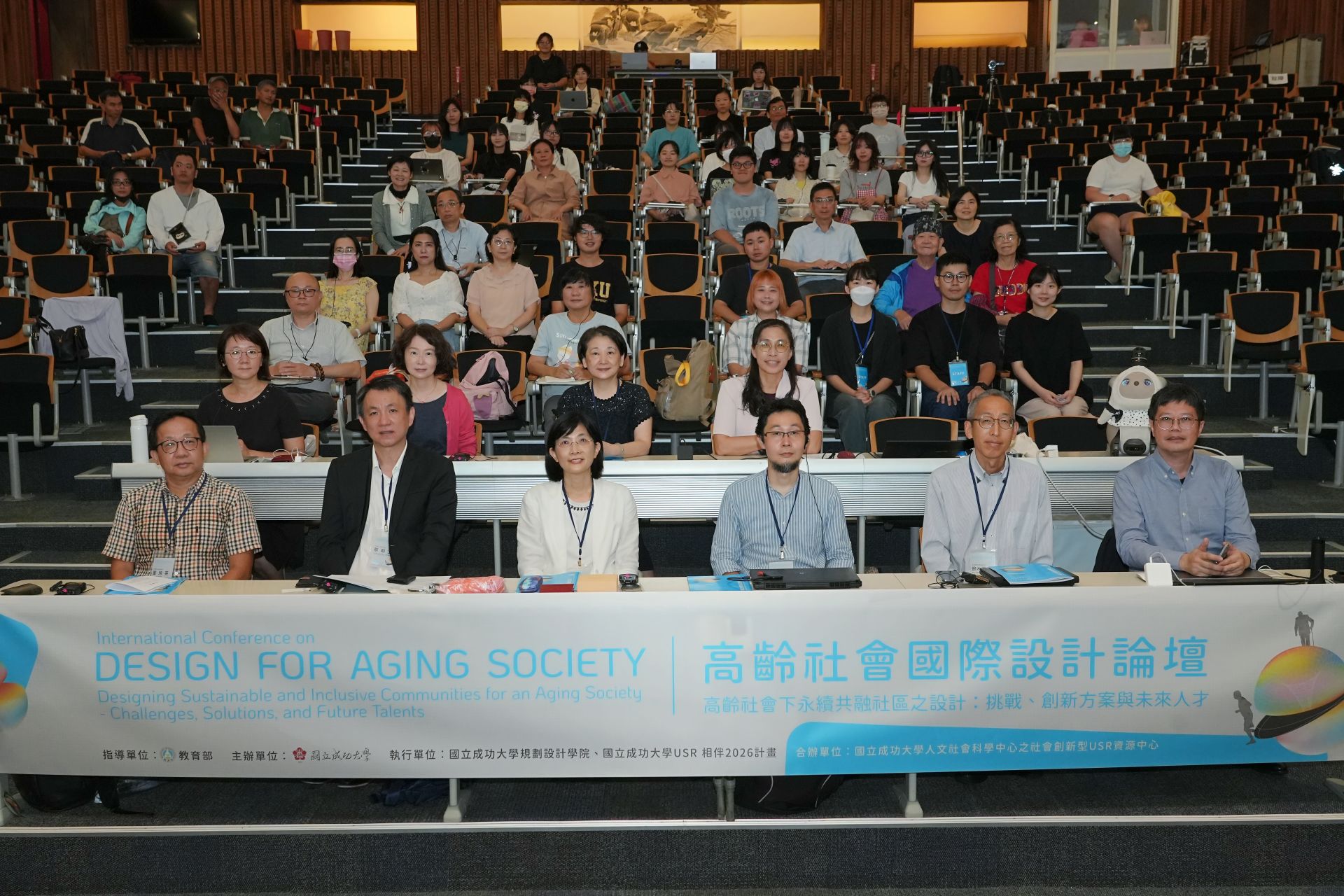
The forum's group photo.
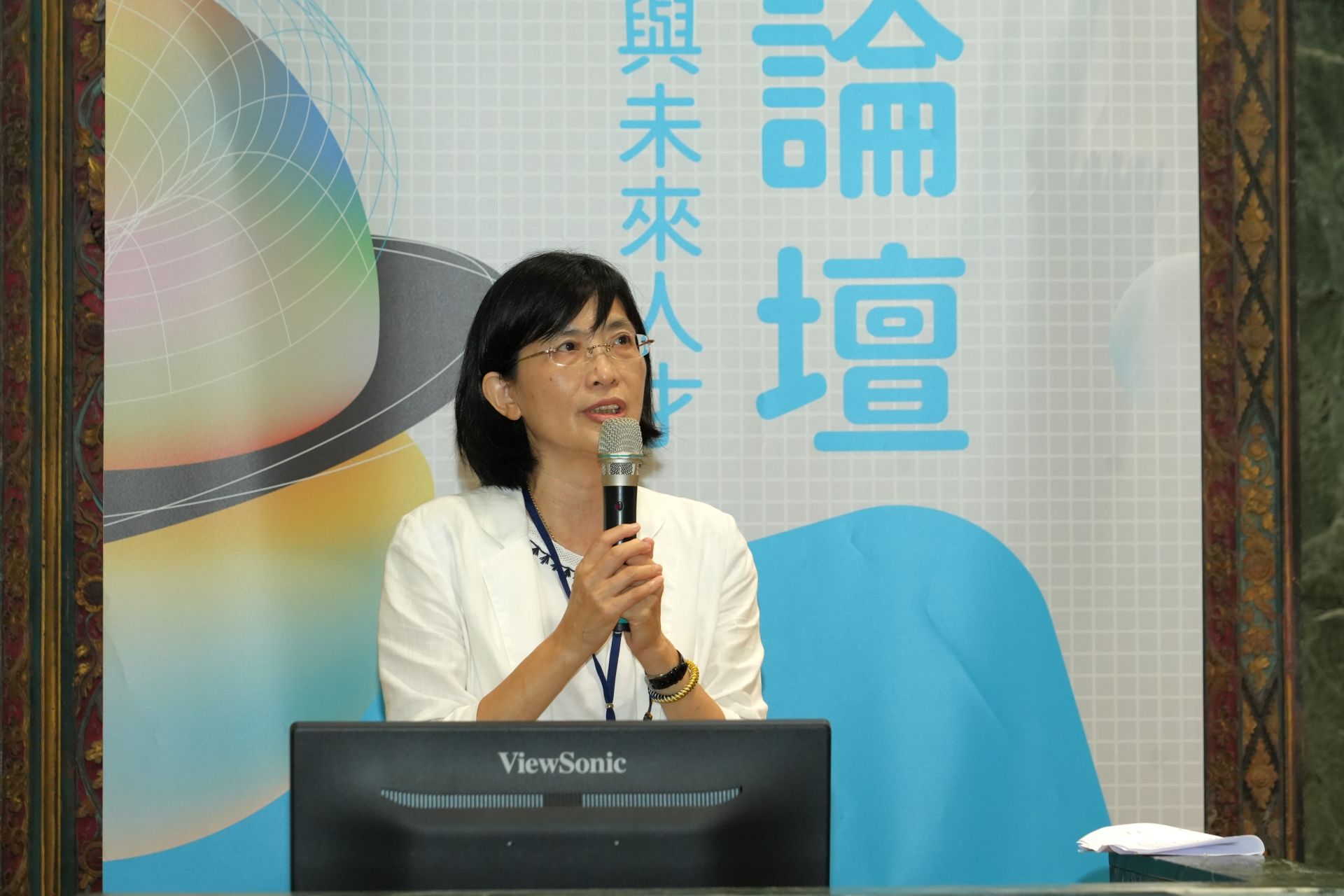
NCKU Vice President Yuh-Neu Chen delivered a speech at the forum.
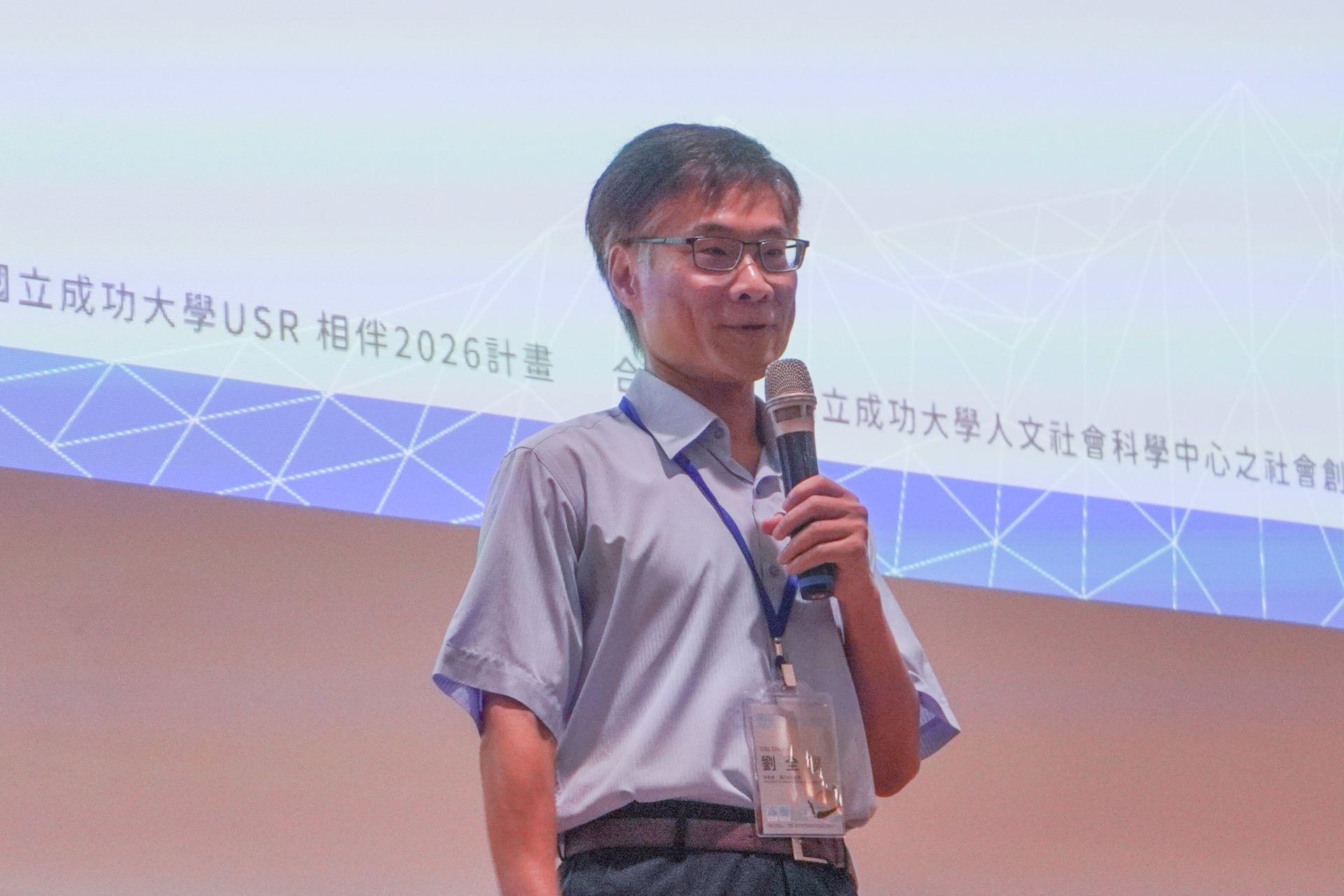
NCKU Vice President for Research and Development, Chuan-Pu Liu, delivered a speech at the forum.
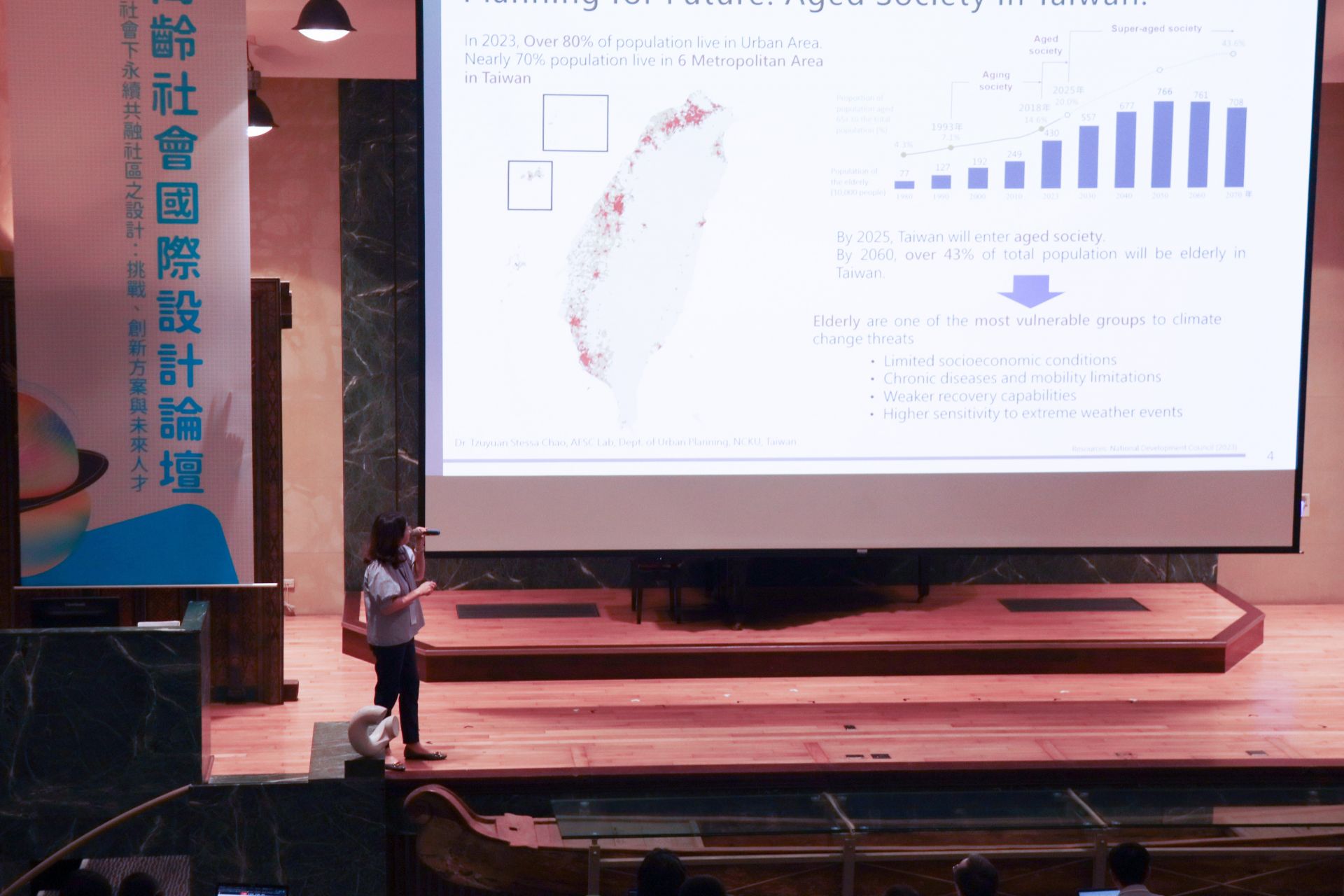
Professor Tzu-Yuan Chao from NCKU's Department of Urban Planning shared a case study from Taiwan on the aging population in high-density cities under climate change.
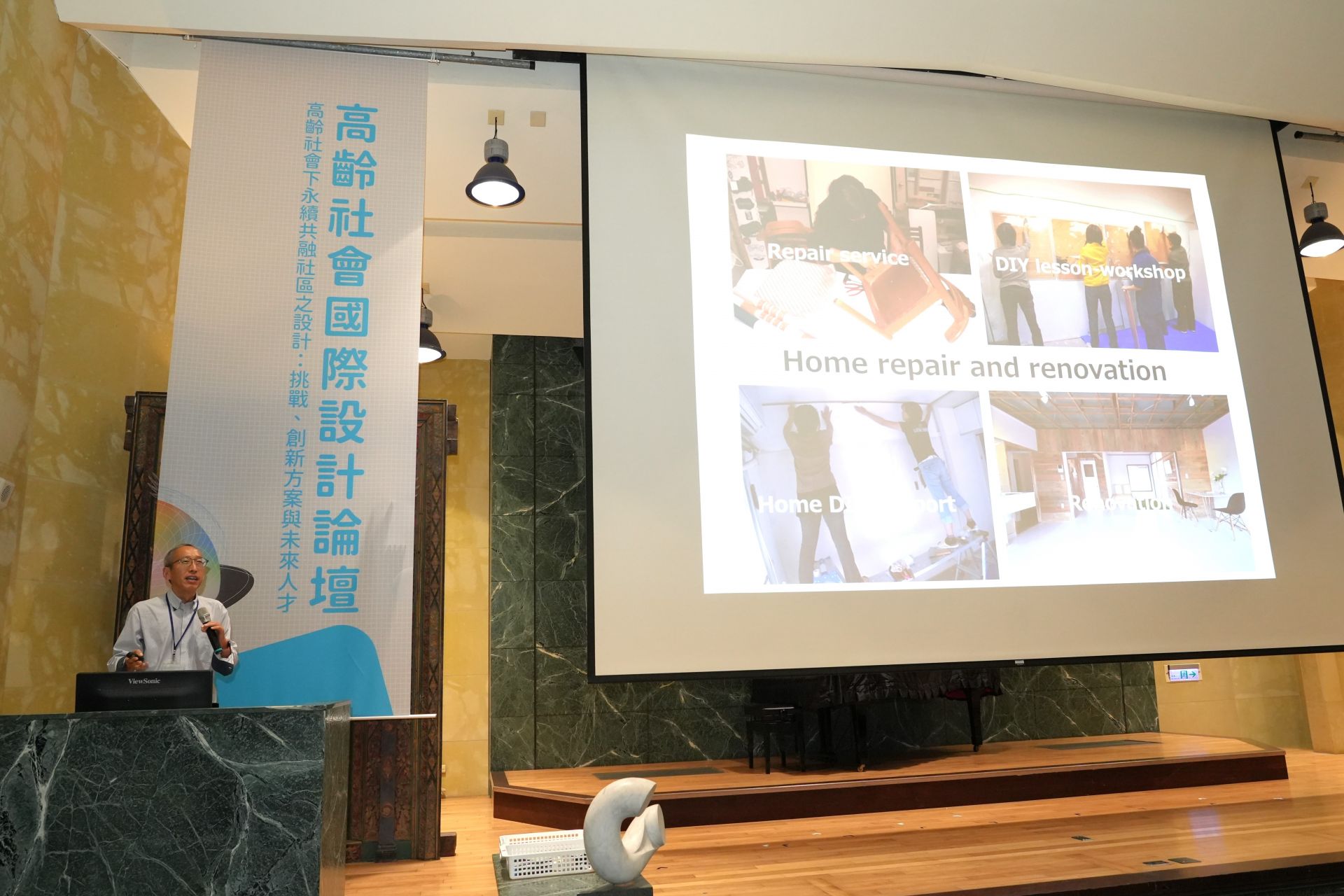
Professor Masayuki Suzuki from Chiba University shared the results of Chiba University's efforts in community development and support for the elderly.
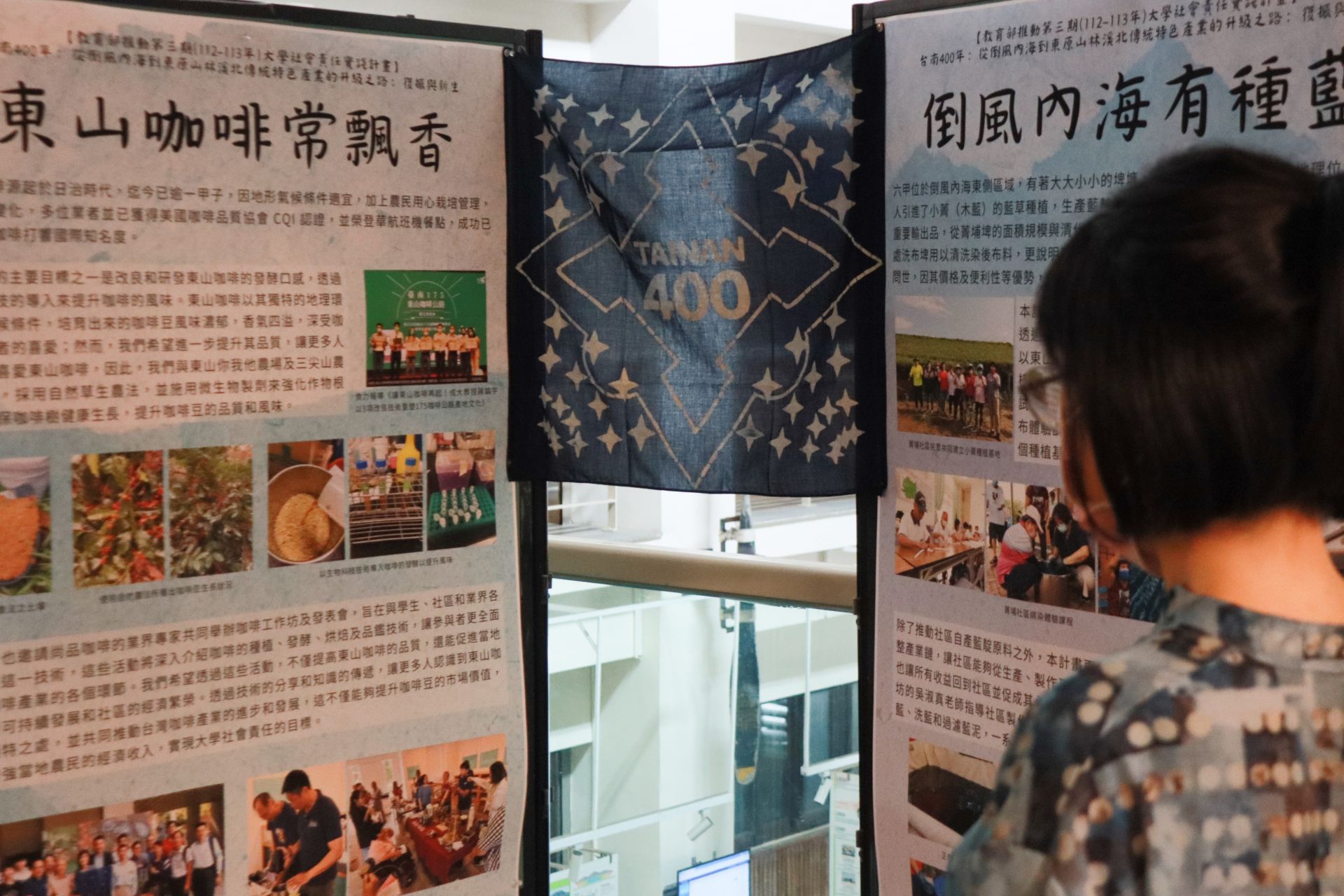
Four of NCKU's USR projects were also showcased at the event with posters introducing them on-site.
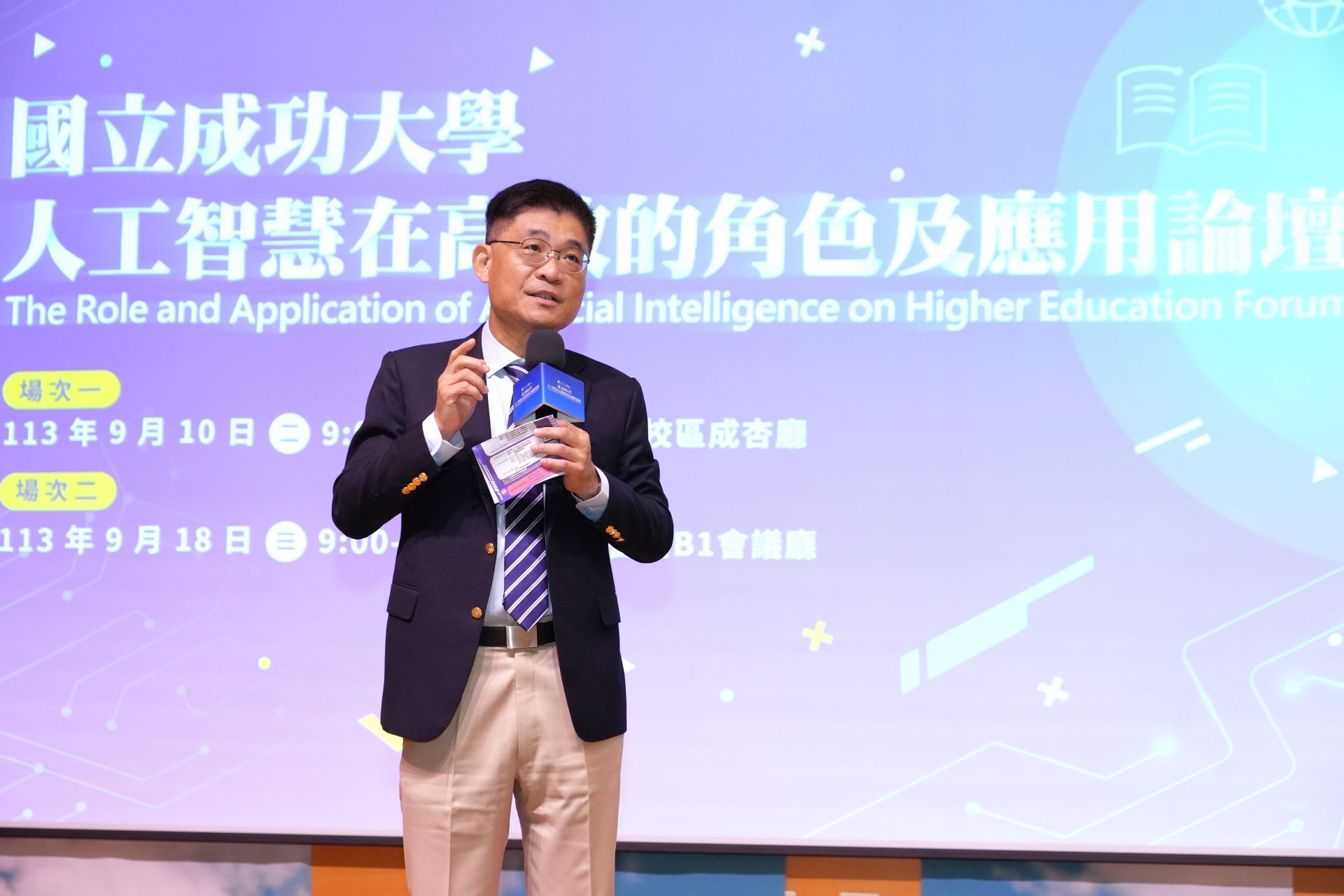
SDG10NCKU "Role and Application of Artificial Intelligence on Higher Education Forum" Forum Concludes with Enthusiastic Participation
View more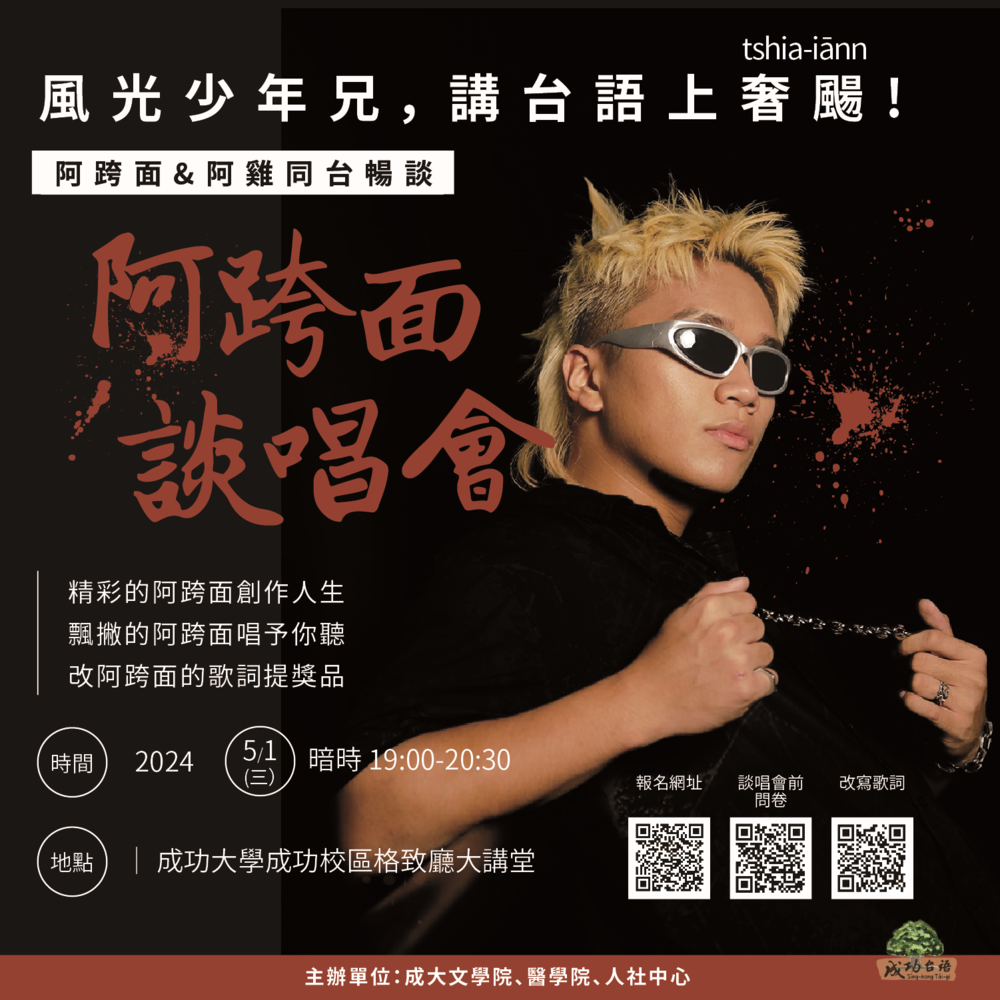
SDG10On May 1st, Ah Kua Mian Talk & Sing Concert: Inviting You to Experience Taiwanese Hip-Hop Culture
View more